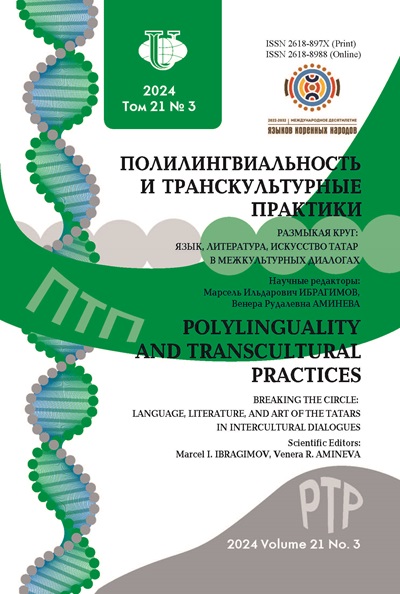Issue
Title
Authors
|
Debrenne M. |
|
Boasiako A.A. |
|
Anipkina L.N. |
|
Nikolaenko S.V. |
|
Letunovsky D.V. |
|
Bondareva O.V. |
|
Shatalova L.S., Shcherbakova O.M. |
|
Guirinskaya L.V. |
|
Tikhomirova E.E. |
|
Saricheva E.A., Yakushev V.V. |
|
Kiynova J.K. |
|
Ndiaye M. |
|
Bulkov A.A. |
|
Nazartseva E.A., Chauzova L.I. |
|
Malysheva N.A. |
|
Balykhin M.G. |
|
Khegay V.K. |
|
Afanasieva N.D., Zakharchenko S.S., Mogileva I.B. |
|
Lugovskaya E.G. |
|
Salimova D.A. |
|
Akimova I.I. |
|
Alekeshova L.B., Zhalmuhanova Z.T., Kabdulova G.M. |
|
Fierman W. |
|
Kurilenko V.B., Makarova M.A. |
|
Karapetjan N.G., Chernenko N.M. |
|
Shoustikova T.V. |
|
Novikova M.L. |
|
Starostin A.N. |
|
Naumenko Y.M. |
|
Klobukova L.P., Vinogradova E.N., Chekalina V.L. |
|
Fan Guodong -. |
|
Motovilova G.G., Pushkova N.N., Sidelnikova A.V., Shustikova T.V. |
|
Voropayeva Y.A. |
|
Dunaeva L.A., Apakina L.V. |
|
Rozanova S.P. |
|
Lavitski A.A. |
|
Butenina E.M. |
|
Amineva V.R., Yuzmukhametova L.N. |
|
Vinogradova E.N., Klobukova L.P. |
|
Khudolei N.V. |
|
Turinova O.O. |
|
Bakhshiyeva F.S. |
|
Chuvaeva K.M. |
|
Prokhorova I.O., Kolesnikowa E.W. |
|
Ivanova A.S., Soboleva N.I. |
|
Nedosugova A.B. |
|
Gerasimova K.M., Temkina N.E. |
|
Strelchuk E.N. |
|
Mikaeljan L.S. |
|
Azimov E.G. |
|
Novikova N.S., Pugachev I.A. |
|
Zharkova E.H., Nazartseva E.A. |
|
Nuradilov S.S. |
|
Davydova E.V. |
|
Ovtcharenko A.Y. |
|
Danilova M.V. |
|
Novikova A.K. |
|
Seifert E.I. |
|
Lavitski A.A. |
|
Medvedeva N.V. |
|
Smagulova J. |
|
Amineva V.R., Nabiullina A.N. |
|
Kalinina V.V. |
|
Orlova E.V. |
|
Dzhusupov M. |
|
Sinyachkin V.P. |
|
Budiltseva M.B., Novikova N.S. |
|
Essina Z.I. |
|
Karapetyan N.G., Pugachev I.A. |
|
Nedosugova A.B. |
|
Bobrova S.E. |
|
Skyaeva E.V., Karapetyan N.G. |
|
Kudoyarova T.V. |
|
Arkhangelskaya A.Z., Zhigunova O.M., Zhindaeva A.G. |
|
Rogova A.V., Fedorenkov A.D. |
|
Korchik L.S. |
|
Gosteva J.N. |
|
Seifert E.I. |
|
Fakhrutdinova L.I., Amineva V.R. |
|
Medvedeva N.V. |
|
Zhang R. |
|
Odintsova I.V. |
|
Caspers O.V. |
|
Rudenko-Morgun O.I., Arhangel’skaja A.L., Al’-Kaysi A.N. |
|
Akhnina K.V. |
|
Bragina M.A. |
|
Prokhorova I.O. |
|
Wenqian Zang -. |
|
Bulavina M.A. |
|
Balykhina T.M. |
|
Guirinskaya L.V. |
|
Namakshtanskaja I.E., Romanova E.V. |
|
Makhankova I.P., Novikova N.S., Serova L.K., Khvorikova E.G. |
|
Tsoupikova H.V. |
|
Romanova N.N., Amelina I.O. |
|
Stepanenko V.A., Nahabina M.M., Kurlova I.V. |
|
Ignatova I.B. |
|
Romero Intriago D.I. |
|
Wenqian Zang -. |
|
Kochai Mir Sahib Jan -. |











